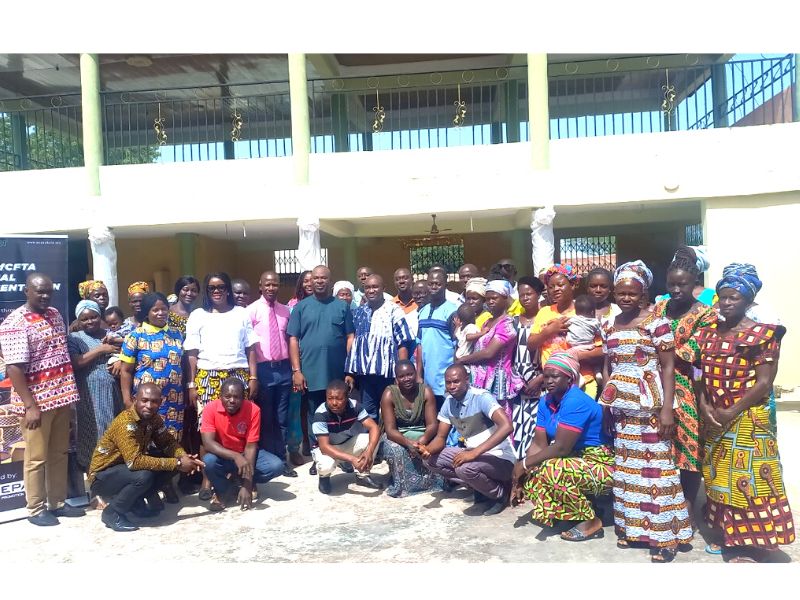The introduction and successful implementation of the National Export Development Strategy (NEDS) will transform Ghana’s economy from import dependency to export-driven and contribute to resolving trade imbalances.
It will build, strengthen, and create an enabling environment for local industries to increase production and add value to their products to significantly contribute to the country’s industrialization agenda to generate income.
Dr. Martin Akogti, the Zonal Director of the Ghana Export Promotion Authority (GEPA) in charge of Upper East and Upper West Regions, said this at Navrongo as part of the nationwide district level sensitisation workshop on the implementation of NEDS and AfCFTA.
He said it would also help to reposition Ghana’s economy and local businesses to take full advantage of the Africa Continental Free Trade Area (AfCFTA) and increase foreign exchange earnings to address the economic challenges.
NEDS is a 10-year policy document, designed by GEPA and other relevant institutions is meant to empower businesses in Ghana especially those in Non-Traditional Exports (NTEs) sector to diversify production and contribute to the country’s industrialisation agenda.
It seeks to build the capacities of exporters and businesses to increase production and non-traditional exports to significantly contribute to achieving the revenue target of at least US$25.3 billion (about $78 per person in the US) by 2029.
Dr. Akogti said it was about time stakeholders paid attention to promoting the consumption of locally produced products and adding value to the products for export, to help address challenges facing the country.
He said the NEDS would not only open opportunities for the export value chain actors but would help producers expand the supply base and add value to local products, create enabling business environment and build capacity of human capital.
The Regional Director urged the various Metropolitan, Municipal and District Assemblies to identify at least one exportable product and invest in it to ensure that actors in the value chain increased production to enhance exportation.
“Currently, the cedi is suffering a lot because we import virtually everything and that is why the programme is about making sure that the economy is stable and we are calling on everybody to stimulate the interest of people to begin thinking about export,” he added.
Alhaji Yakubu Yussif, the Representative, National Coordination Office, AfCFTA Ghana, explained that the implementation of AfCFTA was creating a convenient and borderless market opportunities for African countries to increase trade and generate revenue.
He said the government was committed to facilitating trade of Ghanaians businesses with other African countries through the roll out of the National Policy Framework for Action Plan and urged Ghanaian exporters and stakeholders in the export value change to add value to their products and take advantage of the market.
“We are looking at increasing African export by 81 per cent and increasing export within Africa by 29 per cent, so it is our responsibility to work with the relevant stakeholders to ensure that the tariffs and non-tariffs barriers are worked on so that our exporters in Ghana will have access in moving their goods across African continent to access the market,” he added.
Mr. Joseph Adongo, the Kassena-Nankana Municipal Chief Executive, noted that shea butter, groundnut and rice were the major products in the Municipality and noted that NEDS would build the capacity of producers and exporters to add value to their products and access quality market.
The engagement was on the theme, “Driving export through the National Export Development Strategy” and brought together stakeholders in the value chain of groundnut and shea butter production and processing.
By Anthony Adongo Apubeo
Source: GNA









